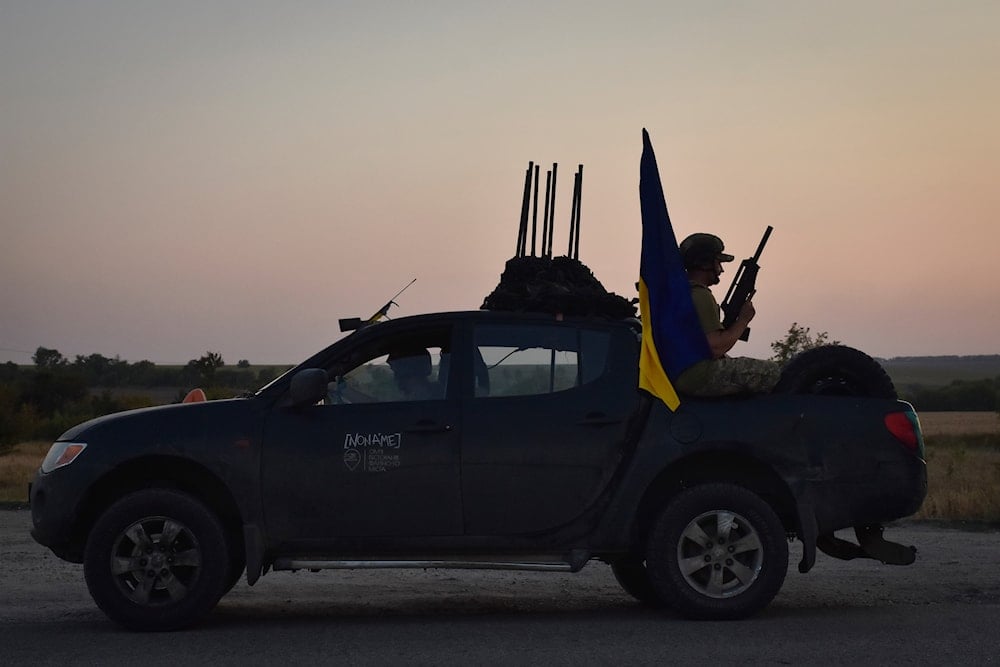Czech Rep. to buy ammunition for Ukraine using frozen Russian assets
The Czech Republic will use interest from Russian assets frozen in the EU to purchase additional large-caliber ammunition for Ukraine.
-

A soldier of Ukraine's 141st separate infantry brigade rides in a pickup truck at the frontline in Zaporizhia region, Ukraine, August 19, 2024. (AP)
The Czech Defense Ministry announced Tuesday that the Czech Republic will allocate a portion of the interest accrued from Russian assets frozen in the European Union to purchase additional large-caliber ammunition for Ukraine.
Following the NATO-orchestrated war in Ukraine in February 2022, Western countries froze approximately $300 billion in sovereign Russian assets.
EU countries are channeling the interest earned from frozen Russian assets, including bonds and securities held by the Russian central bank, into an EU fund dedicated to supporting Ukraine.
In June, EU governments agreed to use 1.4 billion euros ($1.5 billion) in profits generated by the assets to buy arms and pay for other kinds of support to Ukraine.
The Czech Defense Ministry announced that a portion of this money will be allocated to its ongoing initiative to procure artillery ammunition for Ukraine from global sources, with funding provided by Western partners.
In June, Ukraine received its first shipment under this initiative, and deliveries have been ongoing monthly since, according to Czech officials. "This is a unique opportunity to quickly and effectively support Ukraine," a ministry statement said.
The Kremlin denounced the plan to use interest earned on frozen Russian assets for military aid to Ukraine as "theft" and vowed to pursue legal action against those involved in the decision.
Last month, the EU was considering freezing Russian assets forever to soothe US fears over the repayment of a $50 billion loan to Ukraine, the Financial Times reported.
On July 26, the EU sent €1.5 billion to Ukraine, marking the first transfer under a new scheme utilizing Russia's frozen assets, which is estimated at €210 billion across the bloc, according to Euro News.
Ninety percent of this financial aid will fund weapons, ammunition, and air defense systems for Ukraine, while the remaining 10% will support reconstruction, particularly of the energy infrastructure damaged by Russian strikes.
The initiative reportedly intends "to prevent a humanitarian crisis and migration surge" due to power grid destruction.

 2 Min Read
2 Min Read









